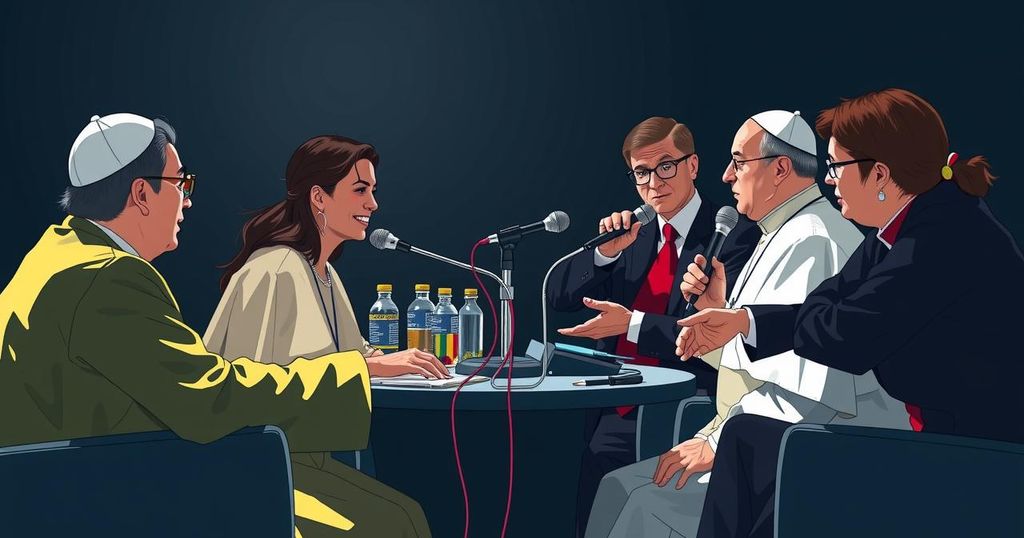At COP29, the Vatican has united with conservative nations to block discussions on women’s rights related to climate change amidst backlash against LGBTQ+ language. This standoff jeopardizes past progress, as advocates stress that women face disproportionate impacts from climate change, and their needs must be prioritized in global agreements.
At the ongoing COP29 climate summit in Azerbaijan, a significant contention has erupted as the Vatican, alongside nations such as Saudi Arabia, Russia, Iran, and Egypt, obstructs crucial discussions focused on women’s rights. Key negotiators revealed that the Vatican’s alignment against the inclusion of terms related to gender, particularly those that might incorporate transgender individuals or mention gay women, is jeopardizing a vital agreement aimed at supporting women impacted by climate change. Colombia’s environment minister expressed frustration, citing that women and girls constitute 80% of those displaced by climate adversities and emphasizing the necessity of recognizing their unique burdens in climate negotiations.
For over ten years, global consensus has acknowledged that women disproportionately bear the brunt of climate change, particularly due to their traditional caregiving roles and reduced access to reproductive health services during disasters. With a UN report predicting that by 2050, 240 million more women will experience food insecurity compared to 131 million more men, the urgency for targeted funding and support is critical. However, the escalation of objections from the Vatican and allied nations against gender terminology has stalled the progress of the long-standing Lima Work Programme on Gender, which has aimed to integrate women’s experiences into climate response strategies.
Although the Vatican has faced criticism for this move, it maintains steadfast opposition to any language that it perceives could legitimize non-traditional views on gender and sexuality. Advocates and charities are alarmed, noting there has been a notable regression in discussions surrounding human rights for women and LGBTQ+ individuals within this context.
The context surrounding the current COP29 deliberations is intricate and layered. Women’s rights and their roles in the face of climate change have become a focal point of advocacy as studies illustrate the disproportionate struggles that women and girls endure during environmental disasters. Historically, discussions at climate summits have been guided by initiatives such as the Lima Work Programme on Gender, aimed at prioritizing the unique needs of women in climate resilience strategies. However, shifting political landscapes and strong opposition from conservative factions have threatened the momentum gained in these discussions, making it critical to navigate these complex negotiations.
The unfolding events at COP29 underscore a pivotal moment for women’s rights within global climate policy, revealing deep divides among nations regarding the acceptance of gender inclusivity. As negotiations stagnate due to the Vatican and its allies’ resistance, the future of support for women grappling with climate challenges hangs in the balance. This impasse reflects a broader trend of resistance against advancements in gender and human rights amid climate crises, leaving advocates to strive for representation and influence within negotiation rooms where decisions about their lives are made.
Original Source: www.bbc.com



